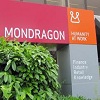After nearly thirty years reading about the Mondragon Co-ops, I finally got to visit the Basque region in person. Much has changed over the years since the inception of the first Mondagon Co-op in 1956. There are currently 120 worker co-ops in the system with 65,000 employees (98% of which are worker members). Almost all of these are located in the Basque region of Spain. In addition, there are currently 140 conventional corporations (not co-operatives) part of the Mondragon Corporation. Of these, 65 are located in Spain and 75 in various countries around the world including China, India, Thailand, Mexico, Brazil, USA and various European countries. In total, there are now nearly 100,000 employees in the Mondragon Corporation and its affiliated enterprises. I do not need to dwell on Mondragon’s current size or growth as it is well documented on their website.
Here are some interesting facts that are not readily available from the website and literature. One of the main reasons for the expansion using the conventional corporate model is the fact that it currently takes approximately 300,000 Euros to create one job. So hypothetically it would require 3 million Euros to start a new co-op with 10 employees. Co-op membership averages 14,000 Euros, which would raise 140,000 Euros in capital leaving a shortfall of 2,860,000 Euros. The shortfall is raised from external investments that may include the Mondragon Corporation, individual Mondragon worker co-ops and external investors. These co-ops with worker members and external investors are known as mixed co-ops. The Mondragon Co-op investors usually maintain 51% control of the general assembly as well as a majority of the members of the governing council of these mixed co-ops. Control at the governing council is then gradually transferred to the worker members over time. Corporations in countries other than Spain are usually partnerships between Mondragon Corporation and or Mondragon Co-ops with local partners. For every job created in affiliated corporations abroad, there is one new job created in Mondragon. The affiliated companies in foreign countries often open up marketing opportunities for products produced in Mondragon Co-ops at home thereby creating jobs. In addition, these companies also create related management and administrative jobs at home.
Another interesting fact is that once a worker becomes a member after a probation period and making the prerequisite investment, their jobs become secure. During economic recessions (like the current one), worker members in co-ops experiencing difficulties can transfer to other co-ops, usually in other sectors less affected by the recession. In early 2011, almost 1000 worker members were working in co-ops other than their own. This number is gradually being reduced as the economy improves. If there are no openings in other co-ops the worker member is laid off at 80% of their salary for up to two years. At that point the worker returns to work and another member is laid off if there is still a shortage of work.
During my visit, I had the opportunity to tour the Fagor Industrial Co-op that produces washing machines. The plant is very automated with only 200 workers producing 1650 units per shift. The plant is currently working on a reduced schedule working 2 shifts 4 days per week. Non-member workers representing about 15% of the work force have been laid off. In order to remain competitive in this sector, the co-op has automated its production lines and reduced the labour component. This is necessary to secure long-term employment, albeit for a reduced workforce. As a point of interest, women account for approximately 80% of the work force at this factory.
A highlight of my Mondragon trip was a visit to the Mondragon University business school in the nearby town of Onati. I gave two presentations related to my experience with developing social enterprises in Canada. One presentation was to 30 first -year students in the Entrepreneurial Leadership and Innovation course. Interestingly, the class is divided into two sections each with no more than 15 students. These students then form a worker co-op and start a business, which they run for four years while they attend the University business school. With the mentorship of professors, the students learn as they work. This is a very innovative way to learn business and management skills as well as skills related to working co-operatively. My second presentation was to students learning management skills in a more traditional manner.
Both the business and engineering schools started out as technical schools but once Mondragon University was established in the 90’s, they became faculties and were able to grant degrees as well as provide graduate courses. There are currently three faculties with Humanities being the third. A fourth faculty, studies in gastronomy (food preparation) will start up soon once the building in San Sebastian currently under construction is completed.
Marty Donkervoort has a long history of working with worker co-ops and social enterprises in the social economy. He can be reached at marty.donkervoort@gmail.com.
